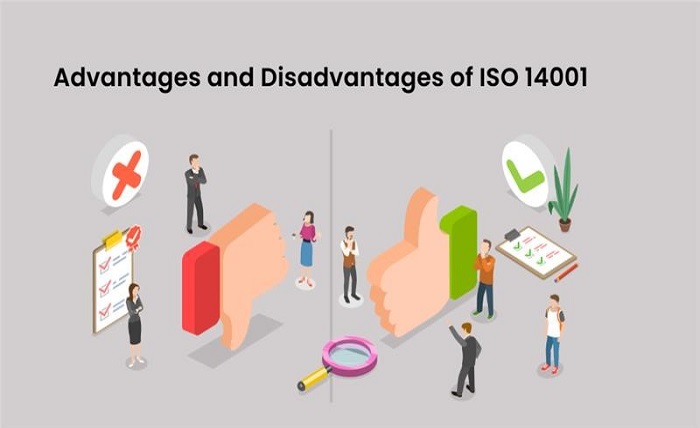ISO 14001 is an internationally recognized environmental management system (EMS) standard. It provides a framework for organizations to manage their environmental obligations and reduce their environmental impact. A company’s dedication to sustainability and environmental care is demonstrated by ISO 14001 Certification. ISO 14001, like every other system, has advantages and disadvantages. In this blog, we will look at the advantages and some Disadvantages of ISO 14001 certification.
Table of Contents
- Advantages of ISO 14001 Certification
- Disadvantages of ISO 14001 Certification
- Conclusion
Advantages of ISO 14001 Certification
Here are some advantages of ISO14001 certification:
- Enhancing an organisation’s environmental performance is one of the key benefits of ISO 14001 certification. The guideline encourages businesses to set goals and targets for decreasing their environmental effect, resulting in more sustainable business practises.
- ISO 14001 assists organisations in complying with environmental rules and legal obligations. Companies that follow these regulations can avoid costly fines, penalties, and potential reputational harm.
- Implementing ISO 14001 frequently results in more effective resource utilisation and waste reduction, resulting in long-term cost benefits. Companies may prevent costly environmental events and liabilities by recognising and minimising environmental risks.
- ISO 14001 accreditation can provide businesses with a competitive advantage in the market. Because many consumers, investors, and partners like to engage with environmentally responsible organisations, ISO 14001 is appealing for potential stakeholders.
- ISO 14001’s methodical methodology encourages organisations to examine their resource utilisation and look for optimisation methods. This can result in less waste, higher energy efficiency, and better resource utilisation, all contributing to both environmental and economic advantages.
- ISO 14001 fosters an organisational culture of environmental responsibility. Employees are more likely to feel proud of working for a socially responsible organisation when they are involved in sustainability activities.
- ISO 14001 assists businesses in preventing events that might harm the environment or interrupt operations by identifying and managing possible environmental risks. This proactive risk management strategy protects the organisation from potential liabilities and reputational harm.
Disadvantages of ISO 14001 Certification
Here are some disadvantages of ISO 14001 Certification:
- Implementing and maintaining an ISO 14001-compliant EMS can be a time-consuming and costly. Organizations may need to engage in training, consultants, and system improvements to achieve the standard’s criteria, which may be difficult for smaller businesses with limited finances.
- ISO 14001 is a broad standard with several criteria and processes. Navigating and integrating the standard’s complexity into existing systems may be difficult and time-consuming for certain organisations.
- ISO 14001 requires extensive documentation of environmental operations, policies, and procedures. While documentation is required for compliance, it may also lead to bureaucracy, resulting in excessive paperwork and administrative strain.
- Employees may not completely embrace the ISO 14001 project if it is regarded as a top-down imposition rather than a shared commitment. The EMS may not be as successful as planned unless there is true excitement and commitment from all levels of the organisation.
- According to certain detractors, ISO 14001 accreditation may not necessarily ensure considerable environmental gains. They point out that organisations may focus simply on satisfying the criteria of the standard, rather than generating genuine change beyond compliance.
- It might be difficult to quantify the influence of ISO 14001 on an organisation’s environmental performance. The consequences may differ based on the organisation’s size, industry, and pre-existing environmental practises.
Conclusion
Organisations seeking to enhance their environmental performance and demonstrate their commitment to sustainability can benefit from ISO 14001 certification. The emphasis on compliance, cost reductions, and stakeholder interactions in the standard can result in substantial advantages for enterprises of all sizes. While ISO 14001 certification may be an effective instrument for promoting environmental stewardship and achieving a competitive advantage, organisations should carefully examine their unique needs and resources before beginning the certification process.

